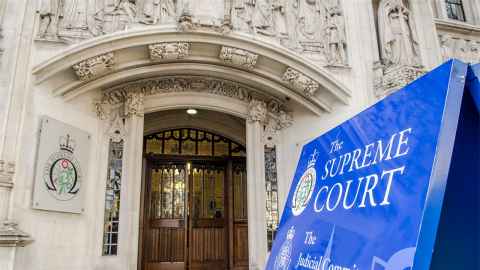A profound, perhaps troubling, ruling
4 October 2019
Opinion: The UK Supreme Court ruling that suspension of Parliament was unlawful blurs political and legal lines and influences NZ’s informal constitution, writes Edward Willis.

Last week, the Supreme Court of the United Kingdom released its judgement in the case known as Miller No 2. It was kind of a big deal, for two reasons.
The first reason is perhaps the more obvious: the ruling shapes the way that the UK’s new Prime Minister, Boris Johnson, would be accountable for Brexit negotiations ahead of the current deadline of October 31. The second reason is more technical: the Court strayed into an area that was traditionally seen to be political rather than legal in nature.
For people like me who think about these issues, one of the big questions is where the line between law and politics should be drawn by our constitution. In its judgement, the Supreme Court has rewritten where we expect to find that line. The result suggests our informal, unwritten constitution may have greater legal content than many of us suspected.
The case itself is about the lawfulness of the Prime Minister to prorogue Parliament – to end the current Parliamentary session and allow MPs to enjoy a break before the new session begins. It is well recognised that the effect of this suspension is that Parliament cannot operate during the break between sessions, and this means the Government and Prime Minister are not directly accountable to Parliament in an ongoing way during this time. Usually, that is no big deal because the break between sessions is short. In this case, the break was to last around five weeks, which in the context of these types of activities is very long indeed.
Complicating matters significantly is the Brexit elephant in the room. This extended lack of government accountability was to occur at a time when the UK’s exit negotiations were coming to a head, and everyone was mindful of the UK’s profound lack of success in those negotiations to this point. Government accountability to Parliament is especially important in this context, and a cynical interpretation might be that the Prime Minister intended to avoid such accountability to make his life easier. As it was, the precise reasons for the extended break between sessions were never fully explained.
As I have previously argued, this is all very constitutionally troubling. The immediate issue is it is not clear that the courts could do anything to stop it. The shared understanding among constitutional experts was that suspending Parliament in this way is strictly a political matter. The Prime Minister’s decision to prorogue is therefore not subject to legal scrutiny.
The ruling rewrites the line that divides law from politics in constitutional systems like those found in the UK and New Zealand. Whether that is a good thing will be a matter of debate.
In a clear, precise and unanimous judgement, the Supreme Court disagreed with this prevailing view. In essence, it found the exceptional Brexit circumstances meant the constitutional issues involved could be assessed as legal standards. The unaccountability of Government was so significant the Court was entitled to intervene. This was not just a matter of politics where the law should not get involved.
Further, because no justification could be given by the Prime Minister for such a long break between parliamentary sessions, the lack of accountability was declared unlawful by the Court. Its ruling means, in effect, the prorogation never happened. Parliament is free to meet and continue holding the Government to account until the October 31 deadline.
The immediate effect of this judgement is that the important accountability of the Government to the people’s representatives has been maintained. Only weak governments fear this kind of accountability and try to prevent Parliament performing its constitutional role. In this sense, the judgement is a victory for constitutionally proper government, and so should be celebrated.
At a technical level, the judgement is equally as profound, but potentially more troubling. The ruling rewrites the line that divides law from politics in constitutional systems like those found in the UK and New Zealand. Whether that is a good thing will be a matter of debate. Defenders of the judgement will point to the exceptional circumstances of the case, something the Court itself put material weight on. It is unlikely further re-writing of constitutional boundaries will be necessary in the foreseeable future, so the impact of the judgement may be limited. Detractors will respond that this case is the thin end of a dangerous constitutional wedge. If the line between law and politics becomes blurred, as it does in this case, then it might be harder for the Government to operate effectively and without undue interference from the courts. Time will tell who is correct.
This debate may sound theoretical, but it is important and will be ongoing. And it will influence New Zealand’s constitutional practice because of our shared history with the United Kingdom. In the near term, the focus is rightly on the confirmation of the UK Government’s responsibility to work with Parliament to achieve Brexit. That is a positive outcome in constitutional terms, and the world waits to see what Prime Minister Johnson makes of this responsibility.
Dr Edward Willis is a lecturer in the Faculty of Law.
This article reflects the opinion of the author and not necessarily the views of the University of Auckland.
Used with permission from Newsroom: A profound, perhaps troubling, ruling 4 October 2019.
Media queries
Alison Sims | Research Communications Editor
DDI 09 923 4953
Mob 021 249 0089
Email alison.sims@auckland.ac.nz